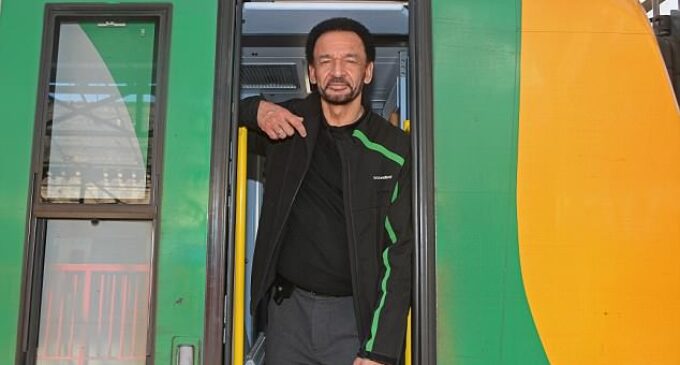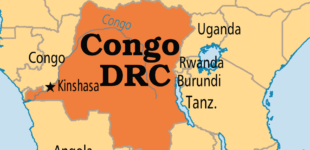EXTRA: Played for Nigeria, now drives trains in London — the story of Tunji Banjo

If you were a fan of Nigerian football in the early 1980s, you would remember Tunji Banjo, John Chidozie and John Orlando.
They were among the first generation of “professionals” — as foreign-based players were called at the time — to play for the national team, then called the “Green Eagles” before they were rechristened “Super Eagles” by the military government in 1988.
Banjo, now 58, played nine international games for the Green Eagles, his debut coming on July 12, 1980 in a World Cup qualifying match against Tunisia.
He was on his way to playing at the 1982 FIFA World Cup before Algeria knocked Nigeria out in the next stage — a year after Nigeria had routed the same team 3-0 to win the African Cup of Nations.
The former Green Eagles’ midfielder did not become a very regular feature for the national team thereafter as he faded away after Nigeria failed to qualify for the World Cup.
Enough of introductions then.
The Daily Mail UK has caught up with Banjo — and what he is currently up to.
Well, he now works on trains in London. He drives them and checks tickets as duty demands.
And no, it’s no big deal to him after a football career that was terminated with a knee injury while plying his trade in Cyprus (of all places).
“The earliest start is 5am in Northampton which means I leave home at three,” he told Daily Mail UK.
“I’ve been a footballer so I know the difference between that and proper work!
“I wouldn’t expect players from today’s academies to understand but it’s nothing new for me.
“I’ve been a bus driver, a dustman. I’d work summers at Orient, I did cleaning at Lord’s cricket ground.”
Banjo recollects Leyton Orient’s loss to Arsenal in the FA Cup semi final in 1974.
“Their first two goals were fluky, deflected shots by Malcolm Macdonald.
“We went back to Brisbane Road after and then I caught the tube home.
“I remember changing trains at Oxford Circus, thinking how crazy it was I’d played in an FA Cup semi-final two hours before.”
He, like other black players, in his era experienced racism.
“I had a bad experience at Bolton early on,” recalls Banji, who has an Irish mother and a Nigerian father.
“I was warming up to come on and got all this verbal abuse and bananas being hurled down.
“We were brought up tough in London so it didn’t put me off but I’m sure those people looking back now must feel ashamed.
“It was just a way of life then. Sometimes you get angry about it but I don’t feel it does you any good to hold any grudges.”
Banjo earned £100 a week as a player.
“I wouldn’t expect players from today’s academies to understand but it’s nothing new for me.
“I’ve been a bus driver, a dustman. I’d work summers at Orient, I did cleaning at Lord’s cricket ground.”
Considering that driving trains is among the best-paying jobs in the UK today, Banjo is not doing badly though.

















There are no comments at the moment, do you want to add one?
Write a comment